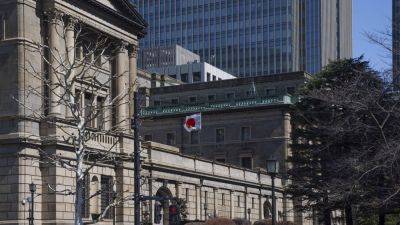Japan's stock rout shows a 'fundamental shift' is underway, Goldman Sachs' equity strategist says
Japan's stock markets hit an eight-month low on Friday, as they declined for two straight days after the Bank of Japan raised benchmark interest rates to their highest level since 2008.
The Nikkei 225 tumbled 5.81% to end at 35,909.7, marking its worst day since March 2020, according to Factset data, and dropping below 36,000 mark for the first time since January.
The broader Topix saw a larger loss of 6.14%, marking its worst day in eight years and closing at 2,537.6.
This is a vastly different picture from less than a month ago, when the Nikkei hit an all-time closing high of 42,224.02 on July 11.
Speaking to CNBC's "Squawk Box Asia," Bruce Kirk, chief Japan equity strategist at Goldman Sachs said that the Japanese market rally had reached a "transitional phase."
"So yes, it's very painful. Yes, there's a fundamental shift taking place in the market, but it's not unusual," Kirk said. "We don't think the [rally] story is broken, but the narrative is definitely evolving, and that's likely to be accompanied by the continued volatility and this quite aggressive sector rotation that we're seeing."
Kirk explained that the rally over the past two years was powered by three factors, namely, yen weakness benefiting blue-chip exporters and banks, expectations of monetary policy normalization, and corporate governance reform.
Japan's markets were Asia's top performers last year and until June this year.
"The rules of the game have [now] definitely changed, particularly around rates and FX," Kirk said, adding investors are now reassessing sector positioning in the market.
There's a silver lining in this repositioning.
Kirk told CNBC that there's investor interest for the first time in about three years in Japan's small- and mid-cap







